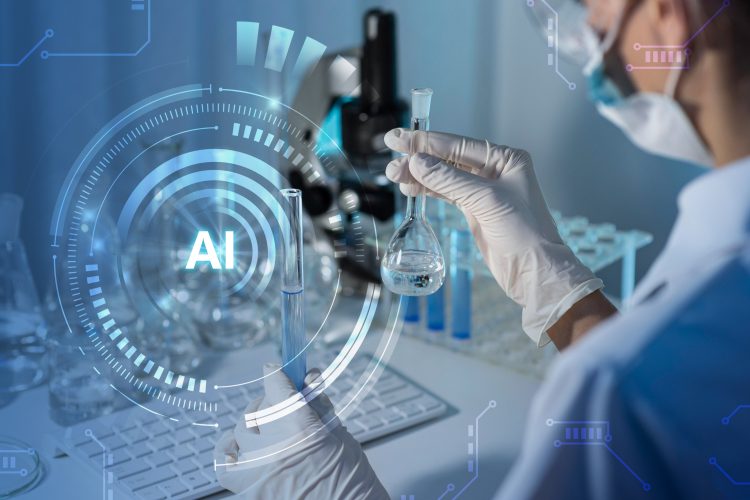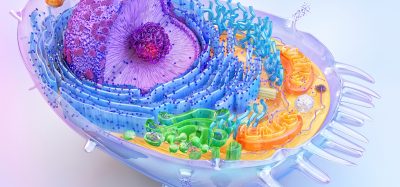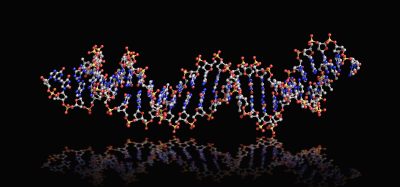Turning AI into a biological design engine
Posted: 23 June 2025 | Drug Target Review | No comments yet
DenovAI has unveiled a powerful AI-driven protein design platform capable of creating new, functional synthetic proteins from scratch – marking a big step forward for drug discovery.


DenovAI, an AI-first biotechnology company, has published a new study in Molecular Systems Biology demonstrating the power of its novel de novo protein design tool. The study introduces an advanced AI-driven platform capable of designing entirely new synthetic proteins with precise biological functions.
“Our research shows what happens when, for design, we stop only tweaking nature’s proteins and start building our own from scratch,” said Dr Kashif Sadiq, Founder and CEO of DenovAI and co-senior author of the paper. “We’ve demonstrated that AlphaDesign can generate proteins that fold as intended and function in living systems, including by targeting complex bacterial immune mechanisms.”
From prediction to creation: the AlphaDesign breakthrough
Developed by Sadiq, Dr Michael Jendrusch and Professor Dr Jan Korbel at the European Molecular Biology Laboratory (EMBL), AlphaDesign fuses generative models with optimisation techniques. It produces synthetic protein sequences and structures entirely de novo, without requiring training on evolutionary data or using known protein templates.
“AlphaDesign represents a new level of control in computational biology: the ability to generate new proteins with measurable, targeted function,” said Professor Dr Jan Korbel, Head of Data Science and Interim Head of Site at EMBL Heidelberg. “This work demonstrates that AI can go beyond predicting biological structure to actively creating new molecular capabilities.”
Real-world protein function, not just computational hits
Unlike many studies that only showcase computational potential, this study includes experimental validation of biological function. The researchers created 88 synthetic proteins targeting bacterial immune systems that complicate therapeutic phage applications – called retrons. Of these, 17 were confirmed as functional inhibitors in vivo.
This is one of the most successful demonstrations to date of AI-designed proteins functioning in biological systems, particularly against complex, poorly understood targets.
DenovAI’s therapeutic vision and commercial platform
DenovAI holds the exclusive license to AlphaDesign through EMBLEM, EMBL’s tech transfer partner. In just 18 months, the company has evolved the technology into a proprietary platform focused on designing therapeutic antibodies, mini proteins and biologics aimed at traditionally hard-to-drug targets.
Accuracy is important because it reduces required design iteration, accelerating the path to clinical trials and enhancing the likelihood of improved efficacy, safety profiles and clinical success.
“This paper is both a scientific validation of our approach and a foundation for our broader mission to transform and accelerate drug discovery and precision medicine by designing biology itself,” said Sadiq. “Accuracy is important because it reduces required design iteration, accelerating the path to clinical trials and enhancing the likelihood of improved efficacy, safety profiles and clinical success. Ultimately this translates to delivering better outcomes for patients. Our vision is that for a given disease we’ll one day be able to design the right therapeutic molecule, right from the start.”
Backed by industry giants, DenovAI eyes expansion
Already backed by companies such as AION Labs, Merck KGaA and Pfizer – DenovAI has secured seed funding to advance its research and development. The company is now preparing for a Series A round to expand therapeutic programs and deepen collaborations with global pharmaceutical companies.
Related topics
Artificial Intelligence, Bioinformatics, Biologics, Computational techniques, Drug Discovery, Machine learning, Peptide Therapeutics, Precision Medicine, Protein, Structural Biology, Synthetic Biology, Therapeutics, Translational Science
Related organisations
AION Labs, DenovAI, Merck KGaA, Pfizer








